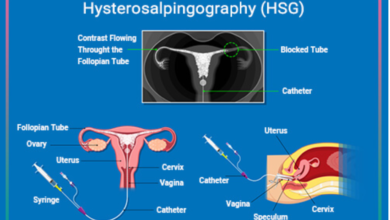PCOD Tests
Follicle-Stimulating Hormone (FSH)

What is Follicle-Stimulating Hormone test?
An FSH test measures the amount of follicle-stimulating hormone (FSH) in your blood. FSH is a hormone produced by the pituitary gland. It plays a crucial role in the reproductive system, particularly in the development of egg follicles in women and sperm production in men.
Why Follicle-Stimulating Hormone test is required?
An FSH test can be used to:
- Assess fertility: In women, elevated FSH levels can indicate that the ovaries are not producing enough eggs. This can be a sign of infertility. In men, low FSH levels can suggest a problem with sperm production.
- Diagnose reproductive issues: Abnormal FSH levels can be associated with conditions such as polycystic ovary syndrome (PCOS), premature ovarian failure, and primary hypogonadism.
- Monitor hormone production: FSH levels can help evaluate the function of the pituitary gland and the reproductive organs.
- Determine the stage of menopause: A significant increase in FSH levels can be a sign of menopause.
Which are the method of Follicle-Stimulating Hormonetest ?
- Blood test: This is the most common method. A blood sample is drawn from a vein in your arm.
- Urine test: At-home ovulation tests can measure FSH levels in urine, but these tests are not as reliable as blood tests for diagnosing fertility issues.
Who should go for Follicle-Stimulating Hormonetest ?
Your doctor may recommend an FSH test if you:
- Are experiencing fertility problems
- Have irregular menstrual cycles
- Are experiencing symptoms of menopause
- Have concerns about your hormone levels
- Are undergoing treatment for certain medical conditions
What are the results of Follicle-Stimulating Hormone test ?
The normal range for FSH levels varies depending on your age, sex, and menstrual cycle. Your doctor will interpret your results and discuss any abnormalities with you.
High FSH levels may indicate:
- Ovarian insufficiency (in women)
- Pituitary gland problems
- Certain reproductive disorders
Low FSH levels may indicate:
- Pituitary gland problems
- Hypogonadism (a condition where the body produces insufficient sex hormones)





